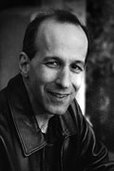Sweet Comedy
If the shrill train wreck The Return of Jezebel James has disappointed you but you’re still in the mood for a sitcom, then I recommend checking out the charming, actually funny Miss Guided. Judy Greer rocks.
If the shrill train wreck The Return of Jezebel James has disappointed you but you’re still in the mood for a sitcom, then I recommend checking out the charming, actually funny Miss Guided. Judy Greer rocks.
Thursday Hangovers Read More »
Which is not the fun kind of bender, I assure you. Yesterday afternoon when I finally finished the second draft of my critical thesis (clocking in at a mind-numbing 15,800 words–double the first version*), I realized that the only words for the state I found myself in were strung out. I felt like I imagine junkies do. Having worked on this thing for four or five hours and as many as seven in a stretch for many days, stopping only to eat garbage and whine, I was STRUNG OUT. Academic writing, even at the level I’m able to manage, requires so much focused concentration. It’s a completely different kind of thinking than fiction, not nearly as fun.
It does sting a bit that the word count is nearly equivalent to a third of a new YA novel. But I feel good about it, and whatever is required of me from here on out, it can’t be as hard as this jag was. Now it’s safely in the hands of my brilliant advisor, and I am taking a couple of days to catch up on the massive amount of everything that has been pushed aside–reading (finally I can finish Jincy Willett’s hilarious and amazing new novel, The Writing Class!), e-mail, this site, television**, and, most importantly, MY NOVEL***.
I have newfound respect for those of you who have completed book-length theses. I bow.
*The minimum requirement is 5,000 words of your own original analysis, excluding all the supporting quotes and etc. Keep in mind that students at traditional MFA programs usually don’t have to do a critical thesis.
**What is up with The Return of Jezebel James? I usually like Parker Posey, but her delivery is so ODD. It proves she’s no Lauren Graham, that’s for sure. But even if her delivery was wonderful, the tone and the ditziness and the terrible, terrible premise and a FREAKING LAUGH TRACK? Well, it doesn’t add up. Whyfore Amy Sherman Palladino? GET YOUR SHIT TOGETHER. That said, playing spot the poster in the background at the fictional Harper offices is fun. I give this show another two weeks before cancellation unless it gets tons better. Liking the show about the really old guy and the new Juliana Margulies lawyer thing okay so far though.
***Don’t tell the fiction writers strike people, okay?
I’m busy with other things today, but John DeNardo was nice enough to include me in the responses for the latest Mind Meld question: "It seems that more and more, fiction marketed as "Young Adult" deals with mature themes. Has it crossed a line? Is young adult sf/f is too explicit?"
My answer is basically: No. Follow the link to see more thoughtful responses, and, er, the expected comment from one John C. Wright.
 So, yes, I’m late to this party*. I’ve been intending to interview Matrimony author Joshua Henkin on the site for, oh, AGES, and he’s been entirely gracious during an extended period when I’ve been so busy that pretty much all optional commitments have gotten continually pushed aside. But: We finally managed to get the interview done, and talk about all sorts of interesting things–writing workshops, craft and process (of course), recommendations–so I think you’ll agree it was worth the wait. If you’ve somehow missed the book, check out this review in the New York Times by Jennifer Egan. And now, without further ado…
So, yes, I’m late to this party*. I’ve been intending to interview Matrimony author Joshua Henkin on the site for, oh, AGES, and he’s been entirely gracious during an extended period when I’ve been so busy that pretty much all optional commitments have gotten continually pushed aside. But: We finally managed to get the interview done, and talk about all sorts of interesting things–writing workshops, craft and process (of course), recommendations–so I think you’ll agree it was worth the wait. If you’ve somehow missed the book, check out this review in the New York Times by Jennifer Egan. And now, without further ado…
GB: I usually start out by asking people about their work process and how it changes (or doesn’t) between projects? Can you tell me a little about what yours looked like for Matrimony?
JH: Well, it took me ten years to write Matrimony, and I threw out more than three thousand pages, so I sometimes think that my work process should be an object lesson in how not to do things. But actually, the book needed to brew as long as it did. My first novel, Swimming Across the Hudson, is told in first-person and is set over the course of approximately a year, whereas Matrimony is told from more than one point of view and covers about twenty years. So pretty early on I knew this was going to be a more ambitious novel and that I would need to approach it differently. Part of what I was doing was figuring out how to write a novel, since I was trained as a short-story writer, and though Swimming Across the Hudson didn’t literally grow out of a short story, it has the sensibility of a long short story–say, in the same way that Richard Ford’s early novel Wildlife does. So I was learning how to operate on a bigger canvas.
One interesting thing that happened early on was that my computer broke down, and while it was in the shop I was forced to write by hand. This turned out to be a real blessing. I’m an absolutely compulsive rewriter and reviser, and my natural inclination is to revise as I go along–to try, on the sentence level, to make everything perfect before I move on to the next scene. This approach is possible (though perhaps not particularly advisable) when it comes to a short story because with a story you can potentially see the whole in advance. But with a novel, you can’t see the forest for the trees, and you need to just write for a couple of years without really knowing what you’re doing or where you’re going. If you revise too early, it’s like building a house and working on the ornamentation on the doorpost before you’ve laid the foundation. You may end up with a beautiful doorpost, but it doesn’t belong in the house. Well, writing by hand helped me combat my tendency to revise too soon. There’s something about writing on computer that, in my case at least, makes me feel compelled to try to make things beautiful–probably because the words look neat on the screen and so I’m drawn to trying to make them neat in deeper, more important ways. But because my handwriting is so bad I had no illusion looking at the page that what I was writing was anything but rough, and this allowed me to plow forward without looking back. So even when my computer came back from the shop, I continued to write much of the first draft by hand.
…
An Interview with Joshua Henkin Read More »
"Do you know what A means, little Piglet?"
"No, Eeyore, I don’t."
"It means Learning, it means Education, it means all the things that you and Pooh haven’t got. That’s what A means."
"Oh," said Piglet again. "I mean, does it?" he explained quickly.
"I’m telling you. People come and go in this Forest, and they say, ‘It’s only Eeyore, so it doesn’t count.’ They walk to and fro saying ‘Ha ha!’ But do they know anything about A? They don’t. It’s just three sticks to them. But to the Educated–mark this, little Piglet–to the Educated, not meaning Poohs and Piglets, it’s a great and glorious A.
You scored as Eeyore!
ABOUT EEYORE: Eeyore lives in his own thistley corner of the forest and wonders why people don’t come to visit him more often. He is master of the Guilt Trip, and is always gently forgiving his visitors for neglecting him. Eeyore considers himself to be smarter than the other inhabitants of the Hundred Acre Wood, and is often exasperated by their habit of having adventures and general merriment.
WHAT THIS SAYS ABOUT YOU: You are an anxious person, and you tend to expect the worst. Your friends find you somewhat cynical at times, because you have found that it is best to expect disappointment. You often feel unappreciated by the people you work with, but you rarely actually try and do anything to change that fact.
Your close friends admire you more than you think they do. They wish that you would learn to stop worrying so much and actually start trying to fix what is bothering you. If something is making you unhappy… change it!
| Link: The Deep and Meaningful Winnie-The-Pooh Character Test written by wolfcaroling |
| Your Reputation Is: Mystery Girl |
 Men are attracted to your intriguing persona – and women want to copy it! |
Two Silly Monkey Quizzes Read More »
*Yep, I realize there’s a string of ghostwriters. I only need concern myself with the first one and the convention observed throughout, since this is intended to bolster a side point.
Saturday Snowstorm Hangovers Read More »
Wednesday Hangovers Read More »